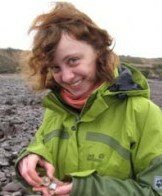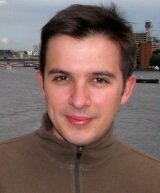The Partners
- Scottish Association for Marine Science
- Univeristy of Liverpool
- Bangor University
- Bournemouth University
- The Marine Biological Association
- University of Plymouth
- University of Southampton
- Aberystwyth University
- National University of Ireland
Steve Hawkins: Project co-ordinator

Prof Steve Hawkins is a rocky shore community ecologist with interests in long-term responses to climate using rocky-shore indicators.
Other interests include: the behavioural ecology of intertidal grazers, restoration of degraded coastal ecosystems, recovery of polluted shores and estuaries, as well as the ecology and design of sea defences
Louise Firth (Modules 1-8)

Dr Firth is a marine intertidal ecologist with a background in both rocky shore and soft-sediment systems.
Her work focuses on the impacts of global climate change and on the structure and functioning of marine systems. She is also interested in anthropogenic impacts on coastal Habitats.
Katrin Bohn (Modules 2, 4, 5, 7, 8)

Dr Bohn is an experimental, intertidal ecologist with main interests in how changes to coastal systems alter the distributions of benthic invertebrates.
In particular, her work focusses on how introductions of non-native species, climate change-induced range shifts and coastal development may result in changes to native biodiversity.
Simon Hoggart (Modules 1, 3, 6, 7 & 8)

Dr Hoggart is an ecologist with a background in coastal, estuarine and riverine environments.
He is interested in the anthropogenic impacts on ecosystems and techniques to manage and restore degraded habitats.
Richard Thompson (Modules 3,4,6 & 8)

Dr Thompson's research focuses on three main areas.
The effects of plastic debris in the marine environment, ecology and conservation of shallow water habitats and habitat modification to enhance the biodiversity of marine engineering such as coastal defences and offshore renewable energy devices.
Mike Burrows (Modules 5 & 8)

Dr Burrows is a marine ecologist at the Scottish Association for Maine Sciences.
His research interests include: the development and test of concepts and problems in the ecology of shallow water and intertidal communities; the application and development of optimisation models to predict behaviour and life histories, as well as the development of models, particularly spatial models and individual based models, using information from studies at small spatial scales and individuals.
Jon Parr: Project dissemination

Jon Parr is the Deputy Director of the Marine Biological Association (www.mba.ac.uk) and led elements of the MarLIN programme (www.marlin.ac.uk).
He has particular interests in marine life education and the dissemination of marine life data. He is on the Executive Group of the Marine Environmental Data Information Network (MEDIN)
Martin Skov (Modules 1-8)

Dr Skov is an experimental marine ecologist with expertise in coastal wetlands and rocky shores.
His work focuses on processes that link local community dynamics with ecosystem function at landscape scales. Examples include the effect of grazers on saltmarsh climate regulation and coastal protection.
Chris Frid (Modules 1 & 8)

Professor Chris Frid heads the Marine Biology group at Liverpool University and is a marine ecologist whose work centres on how mans activities impact on marine ecosystems.
His research focuses on three main areas: Marine ecosystem functioning and the impact of human activities on the continued functioning of the marine environment; long-term changes in marine systems and limiting the impacts of change on the marine ecosystem; responses of marine ecosystems to impacts creating changes.
Leonie Robinson (Modules 1 & 8)

Dr Leonie Robinson is an applied marine ecologist whose main interests lie in the role of marine animals in communities and their response to natural and man-made drivers.
She is also interested in the assessment of the ecological value of communities when considering individual species/functional roles of communities.
Roger Herbert: Related project at Bournemouth University
Marine ecologist: biogeography & climate change, intertidal & freshwater ecology & conservation.
